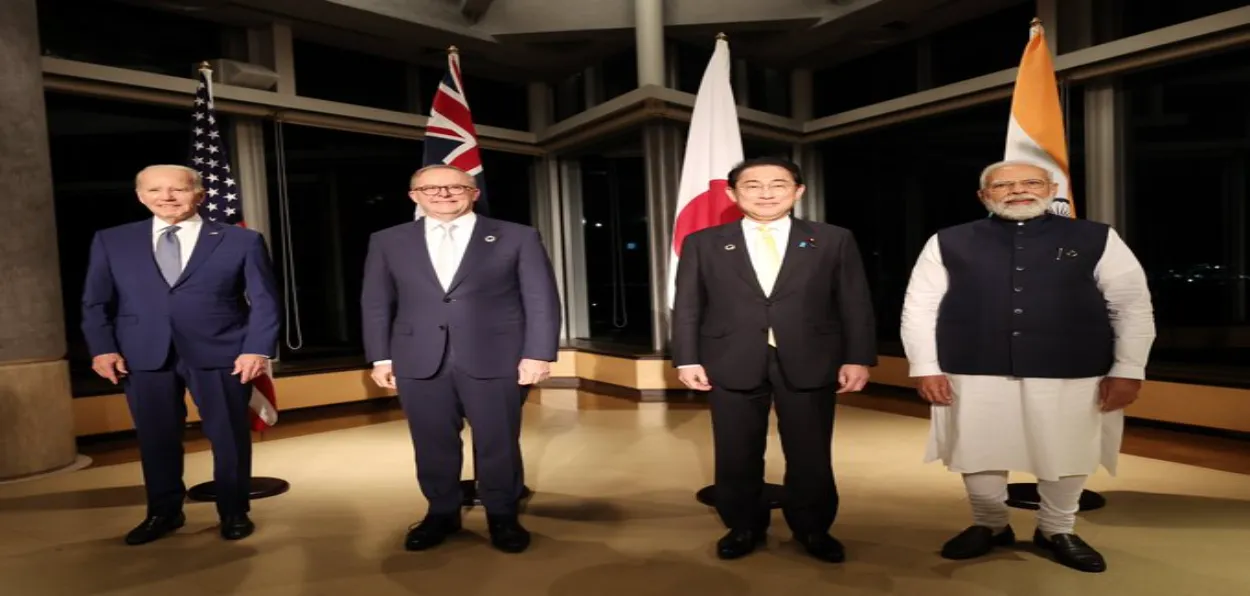
Saeed Naqvi
After two decades of intense India-US courtship the American foreign policy expert who has more or less chaperoned the suitors, has come to the dire conclusion that India likes to be cuddled but will not consummate.
In a revealing article in Foreign Affairs magazine earlier this month, Ashley Tellis, Senior Fellow at the Carnegie Endowment for International Peace and Tata Chair for International Peace, has said it quite bluntly in the headline itself: “America’s Bad Bet on India”. He clarifies further: “New Delhi will not side with Washington against Beijing.”
The importance of the statement lies in the author’s background. When President George W Bush handpicked an experienced China hand, Robert Blackwill, as his Ambassador to New Delhi, a key member of the envoy’s entourage to New Delhi was the brilliant Mumbai-born student who proceeds to do his Ph.D. in Political Science from Chicago University.
Striking Asymmetries, Tellis’ masterly book on nuclear transitions in the South Asian region and beyond qualified him to play a key role in helping draft the landmark Indo-US nuclear deal in 2005. The central figure in the Indian team negotiating the deal was S. Jaishankar, today India’s foreign minister.
The intricacies in the policy document required the expertise of the highest order, which is what Tellis and Jaishankar provided at hand. Once in the course of normal bureaucratic transfers, Jaishankar was posted as High Commissioner to Singapore. So indispensable had he made himself to the nuclear deal that bureaucratic procedures were subverted. Jaishankar reverted to the South Block to see the nuclear deal through.
This elaborate background is to establish Tellis as an insider who has a grip on the details of the Indo-US relations at least since the Bush years. When he describes India as a bad bet for America’s Indo-Pacific policy, New Delhi better takes note.
The timing of Tellis’ article is also important. He has blown the whistle at a time when the administration of President Joe Biden was not only moving along the path of Indo-US relations which Tellis has grown so skeptical about, but the Biden administration has launched “an ambitious new initiative to expand India’s access to cutting edge technologies.”
Further, the administration has deepened its defense co-operation and made the QUAD (Quadliateral Security Dialogue) a pillar of its regional strategy. Tellis is worried that the US has overlooked “India’s democratic erosion and the unhelpful policy choices such as refusal to condemn Moscow’s ongoing aggression in Ukraine.” Washington has done “all this on the presumption that New Delhi will respond favourably when Washington asks for a favour during a regional crisis involving China.” The reality is quite to the contrary: Is Washington being cuckolded?
Tellis is convinced that Washington’s current expectations of India are misplaced. He cites reasons for this state of affairs: “India’s significant weaknesses compared with China, its physical proximity to it, guarantee that New Delhi will never involve itself in any US confrontation with Beijing that does not directly threaten its own security.”
“India values co-operation with Washington for the tangible benefits it brings but does not believe that it must, in turn, materially support the United States in any crisis – even one involving a common threat such as China.”
A section of the China punditry in India, on the other hand, veers around to the view that India is in Fool’s paradise if it imagines that the US would come rushing to its rescue should a real conflict break out with China. On the contrary, the US may goad India into a conflict in pursuit of its effective encirclement of China.
Both Tellis and Jaishankar are aware of the depth of the military relationship. Indeed the two have helped navigate large areas of this relationship. But over the years the US’s capacity to dictate terms has diminished.
Is it possible that Tellis overlooked the fact that it was the Sole Superpower moment when discussions on the nuclear deal with India gave bilateral relations an extraordinary boost? Things have changed. Tellis came to India at a time when the neo-cons around George W Bush were well and truly embarked on the American century. The US could dictate terms then.
The elite section of the US foreign policy and of which Tellis is a member is disenchanted with what was once a key relationship. They must spell out the causes of this disappointment. A simple reason is that the relationship was conceived when the US was the Sole Superpower. No one could afford to be out of America’s orbit.
Tellis is giving vent to his disappointment when the US dominance is more or less over. In a multi-polar world, a nation will drive harder bargains with the US.
It turns out that Tellis and Jaishankar have, even before the publication of the article, had exchanges on the theme including on social media. Both agree that Indo-US relations have, in recent decades, reached a new high in military cooperation particularly. But a burgeoning relationship suddenly chokes on such important issues as “interoperability”. The Pentagon wants to be able to integrate the foreign military in combined operations as part of “coalition warfare”.
“India rejects the idea that its armed forces will participate in any combined military operation.” In not amalgamating totally, India retains its political autonomy. That which leaves the US dissatisfied is a matter of pride for the Indian establishment.
“Such differences will arise with a country like the US” which goes around the world in search of alliances, said Jaishankar in a TV discussion with Tellis. “Take the QUAD” for instance. Two of QUAD members, Australia and Japan, are allies of the US.” India is only a partner and would like to retain that relationship.
ALSO READ: Irresponsible YouTube dawah is dangerous
Are these differences in the backdrop against which President Biden has canceled his participation in the QUAD summit in Sydney? He is attending the G7 in Japan where ironically all the QUAD leaders will be present.
